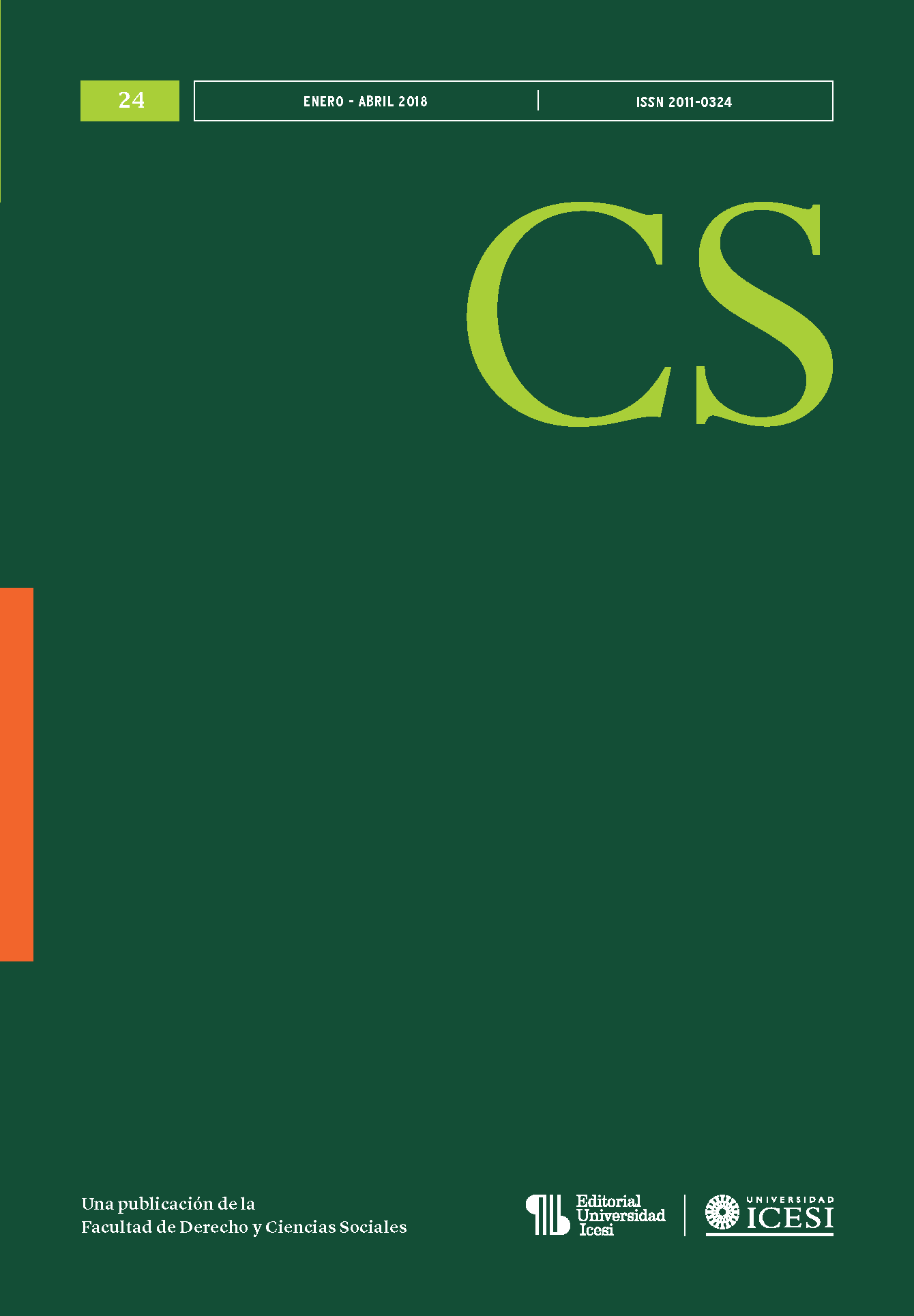Cannabis political action in cyber-reality
DOI:
https://doi.org/10.18046/recs.i24.2474Keywords:
Cyber-reality, Cannabis, Facebook, Internet, Exclusion, Collective action.Abstract
This article analyses the role of the Internet in general and Facebook in particular in the emergence and configuration of cannabis activists organized as Colombian Cannabis Community (CCC). The creation of profiles, groups and contacts on Facebook by the various activists constitute a constant communication space that strengthens the activist’s cannabis action as a whole. This space combines three central issues: 1) strengthens the organized confrontation of a situation of exclusion, 2) allows mutual knowledge and collective identification between activists of the cannabis movement and 3) enables the process of organization and collective action of cannabis users in Colombia.
Downloads
References
CAMPS, V. (2011). El gobierno de las emociones. Barcelona, Herder.
CASTELLS, M. (2012). Redes de indignación y esperanza. Madrid, Alianza.
CORTEŚ, F. (2002). Justicia y exclusión: elementos para la formulación de una concepción igualitaria de justicia. Estudios Políticos. (20), 157-178. Recuperado de: http://revistaestudiospoliticos.
udea.edu.co/index.php/estudiospoliticos/article/view/17479
DALSGAARD, S. (2016). The Ethnographic Use of Facebook in Everyday Life. Anthropological Forum. 26 (1), 96-114. doi: 10.1080/00664677.2016.1148011
ESCOHOTADO, A. (1998). Historia de las drogas. vol.3. Madrid: Alianza.
FERNÁNDEZ PRADOS, J. S. (2012). Ciberactivismo: conceptualización, hipótesis y medida. Arbor Ciencia, Pensamiento y Cultura. 18 (756), 631-639. doi: 10.3989/arbor.2012.756n4001
Gobierno Nacional de la República de Colombia, Ministerio de Justicia y del Derecho. Observatorio de Drogas de Colombia, Ministerio de Salud y Protección Social, Oficina de las Naciones Unidas contra la Droga y el Delito –UNODC–, la Comisión Interamericana para el Control del Abuso de Drogas –CICAD–, OEA y Embajada de los Estados Unidos en Colombia - INL. (2014). Estudio nacional de consumo de sustancias psicoactivas en Colombia, Informe del año 2013. Bogotá D.C.
GOFFMAN, E. (2003). Estigma. La identidad deteriorada. Buenos Aires: Amorrortu.
GUBER, R. (2001). La etnografía. Método, campo y reflexividad. Bogotá: Norma.
HONNETH, A. (1997). La lucha por el reconocimiento. Barcelona: Crítica.
HONNETH, A. (2012). Reificación. Argentina: Katz.
RESTREPO PARRA, A. (2017). El derecho a consumir marihuana. Estudios Políticos. (50). (En
prensa).
PEREA, C. M. (2016). Limpieza social una violencia mal nombrada. Bogotá: Centro Nacional de Memoria Histórica, Universidad Nacional de Colombia.
TARROW, S. (2004). El poder en movimiento. Madrid: Alianza.
TILLY, CH. (2004). ¿De dónde vienen los derechos? Madrid, Sociológica. 19 (55), 273-300. Recuperado de: http://www.revistasociologica.com.mx/pdf/5510.pdf
Downloads
Published
Issue
Section
License
Copyright (c) 2018 Adrián Restrepo Parra

This work is licensed under a Creative Commons Attribution-NonCommercial 4.0 International License.
© Reserved Copyright
Material in this publication may be reproduced without authorization, provided the title, author and institutional source is acknowledged.
The content published in Revista CS is distributed under the Creative Commons BY-NC 4.0 Attribution/Recognition-NonCommercial 4.0 International license.
You are free to:
Share — copy and redistribute the material in any medium or format.
Adapt — remix, transform, and build upon the material.
Under the following terms:
Attribution — You must give appropriate credit , provide a link to the license, and indicate if changes were made . You may do so in any reasonable manner, but not in any way that suggests the licensor endorses you or your use.
NonCommercial — You may not use the material for commercial purposes.












